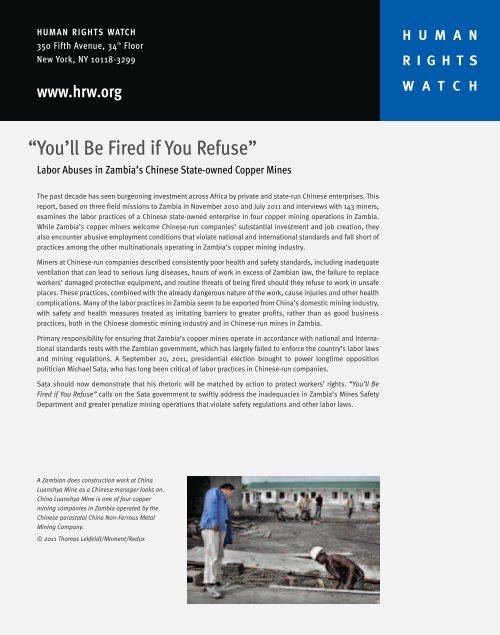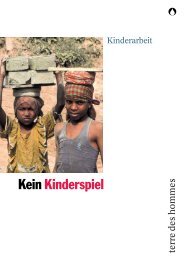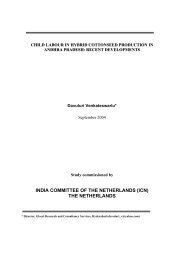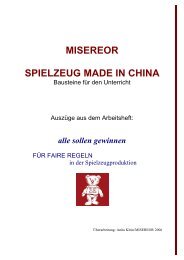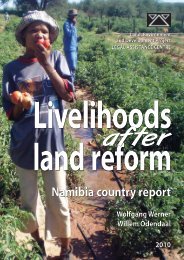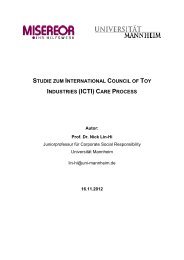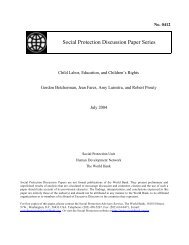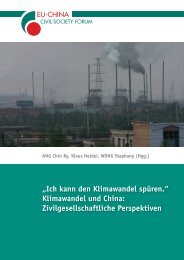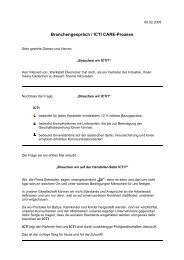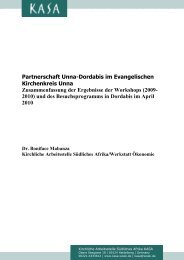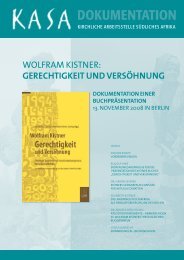“You'll Be Fired if You Refuse†- Human Rights Watch
“You'll Be Fired if You Refuse†- Human Rights Watch
“You'll Be Fired if You Refuse†- Human Rights Watch
You also want an ePaper? Increase the reach of your titles
YUMPU automatically turns print PDFs into web optimized ePapers that Google loves.
H UMAN R I G H TS WATCH<br />
350 F<strong>if</strong>th Avenue, 34 th Floor<br />
New York, NY 10118-3299<br />
www.hrw.org<br />
H U M A N<br />
R I G H T S<br />
W A T C H<br />
“<strong>You</strong>’ll <strong>Be</strong> <strong>Fired</strong> <strong>if</strong> <strong>You</strong> Refuse”<br />
Labor Abuses in Zambia’s Chinese State-owned Copper Mines<br />
The past decade has seen burgeoning investment across Africa by private and state-run Chinese enterprises. This<br />
report, based on three field missions to Zambia in November 2010 and July 2011 and interviews with 143 miners,<br />
examines the labor practices of a Chinese state-owned enterprise in four copper mining operations in Zambia.<br />
While Zambia’s copper miners welcome Chinese-run companies’ substantial investment and job creation, they<br />
also encounter abusive employment conditions that violate national and international standards and fall short of<br />
practices among the other multinationals operating in Zambia’s copper mining industry.<br />
Miners at Chinese-run companies described consistently poor health and safety standards, including inadequate<br />
ventilation that can lead to serious lung diseases, hours of work in excess of Zambian law, the failure to replace<br />
workers’ damaged protective equipment, and routine threats of being fired should they refuse to work in unsafe<br />
places. These practices, combined with the already dangerous nature of the work, cause injuries and other health<br />
complications. Many of the labor practices in Zambia seem to be exported from China’s domestic mining industry,<br />
with safety and health measures treated as irritating barriers to greater profits, rather than as good business<br />
practices, both in the Chinese domestic mining industry and in Chinese-run mines in Zambia.<br />
Primary responsibility for ensuring that Zambia’s copper mines operate in accordance with national and international<br />
standards rests with the Zambian government, which has largely failed to enforce the country’s labor laws<br />
and mining regulations. A September 20, 2011, presidential election brought to power longtime opposition<br />
politician Michael Sata, who has long been critical of labor practices in Chinese-run companies.<br />
Sata should now demonstrate that his rhetoric will be matched by action to protect workers’ rights. “<strong>You</strong>’ll <strong>Be</strong><br />
<strong>Fired</strong> <strong>if</strong> <strong>You</strong> Refuse” calls on the Sata government to sw<strong>if</strong>tly address the inadequacies in Zambia’s Mines Safety<br />
Department and greater penalize mining operations that violate safety regulations and other labor laws.<br />
A Zambian does construction work at China<br />
Luanshya Mine as a Chinese manager looks on.<br />
China Luanshya Mine is one of four copper<br />
mining companies in Zambia operated by the<br />
Chinese parastatal China Non-Ferrous Metal<br />
Mining Company.<br />
© 2011 Thomas Lekfeldt/Moment/Redux


